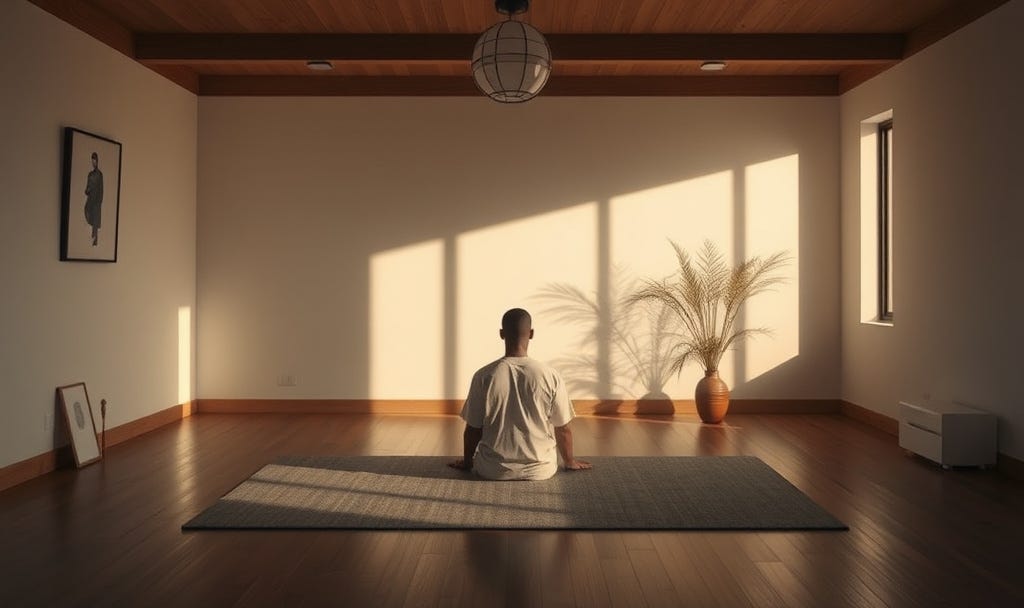How to Own Your Attention in a World That Steals It
The hidden reason you’re exhausted (it’s not burnout) + the 5-minute morning ritual that gave me 4 extra hours of deep focus every day
It’s not that we’ve lost our focus. It’s that we’ve stopped owning it.
Today on the Passion Struck podcast, we went deep on the hidden crisis stealing our lives one notification at a time. Twenty minutes in, one line rewired my brain:
“We’ve made busyness the new belonging.”
Think about that. We wear exhaustion like a badge. We flex our overflowing calendars the way teenagers once flexed concert wristbands. If you’re not triple-booked and triple-pinging, are you even in the club?
This is the invisible epidemic of our era: fragmentation. We’re constantly connected, yet rarely present. We mistake motion for meaning, information for wisdom, and 47 open tabs for progress.
The result? A low-grade exhaustion that somehow still feels productive.
The Neuroscience of a Hijacked Mind
Your attention system was never engineered for 400 notifications a day.
Every ping, every “just one more” scroll, every context switch costs real metabolic energy. Gloria Mark’s research at UC Irvine shows the average knowledge worker now switches tasks every 47 seconds. That’s not multitasking. That’s micro-switching on steroids.
Each switch spikes cortisol, shrinks working memory, and literally thickens the neural pathways for distraction while thinning the ones for deep work.
We can break attention into three distinct processes, most of us have collapsed into one blurry mess:
Attention—the gatekeeper that decides what enters awareness.
Focus—the muscle that sustains attention over time.
Concentration—the application of focused attention toward something that actually matters.
We’re not just distracted. We’re disconnected from what matters most.
The Myth of Balance (and the Freedom of Alignment)
Forget balance. Chasing the perfect 33/33/33 split between work, family, and rest is a recipe for guilt. Instead, ask a sharper question: Does this moment reflect my priorities?
That single reframe is rocket fuel. It transforms trade-offs from failure into intention. When everything matters equally, nothing truly does. But when you decide, deliberately, what deserves your gaze, you stop leaking energy to the trivial.
The Attention Trap We All Fall Into
Here’s the part that gutted me.
Mind-wandering isn’t random. It’s emotional. When your thumb drifts to Instagram in a quiet moment, you’re not lazy. You’re avoiding. Boredom. Anxiety. The creeping sense that your life isn’t measuring up to the curated version on the screen.
We’ve become so addicted to stimulation that silence feels like a threat.
That’s the attention-debt spiral: the more we outsource our emotional regulation to dopamine hits, the less tolerance we have for the very stillness where insight lives.
Micro-Habits That Actually Move the Needle
The good news? You don’t need a 30-day digital detox or a cabin in the woods. You need micro-habits that compound.
The playbook is stupidly simple and that’s why it works:
The 10-Minute Buffer: No phone for the first ten minutes after waking. Let your brain boot up in its native operating system instead of someone else’s algorithm.
Tiny Trusts: Keep one promise to yourself every day. Finish the walk. Close the 27 tabs. Drink the water. Each kept promise is a deposit in the Bank of Self-Respect.
Soft Fascination: Step outside and let nature do what push notifications never will: recalibrate your overstimulated nervous system. Clouds, leaves, wind—free therapy.
Digital White Space: Schedule three 5-minute pauses with zero input. No music, no podcast, no AirPods. Just you and the hum of your own thoughts. It feels like withdrawal at first. Then it feels like coming home.
Sleep as Strategy: Consistency beats quantity. Same bedtime, same wake time—even on weekends. Your brain treats it like a software update that can’t be interrupted.
The Focus Ritual That Changed My Mornings
Every morning, before I touch my phone, I run this 5-minute reset:
One minute of box breathing (4-4-4-4).
Two minutes of journaling, one intention: What would make today undeniable?
One minute scanning my calendar and asking, “Which of these actually moves the needle?”
One minute of gratitude—specific, not generic.
Five minutes. Non-negotiable. It’s the difference between reacting to the day and authoring it.
Attention Is the Purest Form of Love
When you look up from the screen and actually see your partner mid-sentence… When you put the phone in the glove box and hear your kid describe the cloud that looks like a dinosaur… When you give a stranger on the subway platform the dignity of eye contact…
You’re saying, without words: You matter more than my feed.
In a world engineered to steal your gaze, presence is rebellion.
The One Question That Can Save Your Day
Next time you catch yourself reaching for the phone in a quiet moment, pause and ask:
What am I avoiding feeling right now?
That single question—asked honestly—can hand the steering wheel back to you.
Because finding focus isn’t about seeing more. It’s about remembering who you are when you finally stop scrolling.
We don’t need bigger wills. We need better questions. We don’t need more time. We need more intention. We don’t need perfect balance. We need fierce alignment.
Your attention is the ultimate vote for the life you want to live. Cast it wisely.
P.S. Catch the latest episode of Passion Struck. It’s a masterclass on reclaiming your attention in an age of endless distraction.
What’s one micro-habit you’re stealing from this post? Drop it in the comments. I read every single one.
Keep choosing what matters.





Insightful. I will definitely try not touching my phone first ten minutes after waking up and journaling after waking up